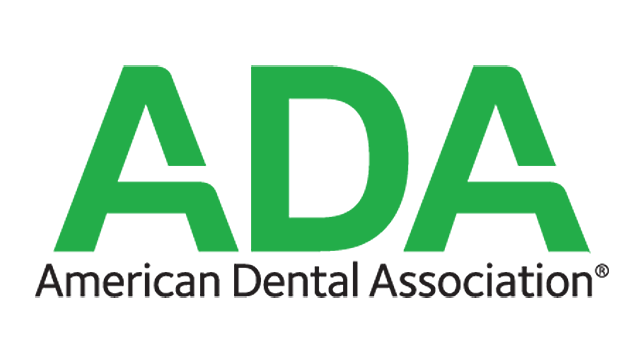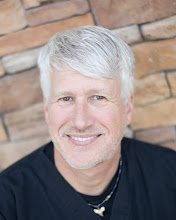As many of you know, I was fortunate enough to present a couple of lectures at The Chicago Dental Society's MidWinter Meeting. In addition to being able to lecture, I also had a terrific time. As a midwest guy, the CMW is always on the list of meetings that I make sure to attend. At this point, I'm not sure how many years in a row it has been for me, but it's got to be around 20 years or more that I've been there.
If you've never attended, I highly recommend attending. It's such a great meeting! The folks at CDS have got this down to a science. It's incredibly well run and has become *the* meeting to see the latest and greatest new products. Here's the wrap up from the CDS...
The 2024 Midwinter Meeting Attracted More than 21,000 Attendees to Chicago’s McCormick Place and Generated Nearly $27 Million in Economic Impact
March 6, 2024 (CHICAGO) – The Chicago Dental Society (CDS) Midwinter Meeting is the most historic and one of the largest dental conferences in the country. The 159th Midwinter Meeting took place February 22 to 24, 2024, at McCormick Place West, attracted more than 21,000 attendees and generated an estimated $26.6 million in economic impact for Chicago. The annual event continues to grow in size and yield attendee and exhibitor satisfaction in a post-pandemic environment.
“The energy of the 2024 Midwinter Meeting was outstanding, which is a real testament to the passion the CDS volunteers and staff have when organizing an incredible show year after year,” said CDS CEO, Heather Nash, CMP, CAE. “There were more than 560 exhibitors in the Exhibit Hall this year, up from last year, over 230 scientific sessions and a great mix of networking events that brought students and early career dentists together, like the new Yoga for Midwinter Mindfulness, Sips, Suds & Sales, and the new Podcast Lounge that was bustling with interviews.”
In the dental industry, the Midwinter Meeting is often described as the kick-off to the year, and the three-day conference for dental professionals is regarded as the most respected scientific dental meeting in the industry and the largest dental meeting in North America. The Midwinter Meeting provides attendees with unmatched access to hundreds of companies showcasing and debuting the latest products and innovations to see and test, hundreds of continuing education opportunities to help stay current on the best practices and latest techniques as well as career-building networking events. Midwinter Meeting attendees include dentists, hygienists, assistants, office personnel, residents, laboratory technicians and dental students from all around the world. The 2024 event attracted attendees from 49 U.S. states and 68 different countries.
“The Midwinter Meeting is the must-attend event in the dental industry, and this year’s event truly exemplified that statement,” said CDS President Dr. David Lewis. “Each day of the Midwinter Meeting, I spoke with attendees, exhibitors, speakers and CDS members, and every one of them had positive feedback about the show. It’s invigorating to see and hear so many professionals under one roof who are enthusiastic and dedicated to advancing the profession.”
From 2022 to 2023, attendance at the Midwinter Meeting surged, increasing 27% year over year. From 2023 to 2024, attendance continued to climb another 1% to 21,135 attendees. Choose Chicago, the City of Chicago’s tourism agency, reported an estimated economic impact of more than $26.6 million from the 2024 Midwinter Meeting.
Preliminary results from the post-event survey are quickly quantifying the event’s success. On a scale from one to 10, more than 50% of respondents have indicated a 10 when asked if they would recommend the Midwinter Meeting to a colleague or friend. Others are expressing their satisfaction on social media, such as Max Zanan of Dental Protection Group, a first-time exhibitor, who commented on the CDS Facebook page, “Dental Protection Group exhibited in Chicago for the first time, and we absolutely loved it. By far the best dental conference of the year. Looking forward to coming back in 2025.”
Established in 1864, CDS is the largest local component of the American Dental Association, with more than 4,000 members in Cook, Lake and DuPage counties.
About the Chicago Dental Society
Trust a Chicago Dental Society (CDS) dentist with more than just your smile. Talk with them and you'll see their work is an investment in not just your oral health, but your overall health. They are current on the dental trends and technology through extensive CDS continuing education programs, including the Midwinter Meeting. Ranking among Chicago’s top 20 conventions, the CDS Midwinter Meeting – one of North America’s largest exhibits of dental products and professional dentistry – typically welcomes nearly 22,000 dental professionals each year and generates more than $26 million for the local economy (according to Choose Chicago). The largest local component of the American Dental Association, the non-profit Chicago Dental Society represents dentists across the Chicago region. They're your neighbors, friends and community anchors. Connect with the Chicago Dental Society at cds.org, where you’ll find our easy-to-navigate Find-a-CDS Dentist search tool. Or, connect on Facebook, X, YouTube and Instagram.

















